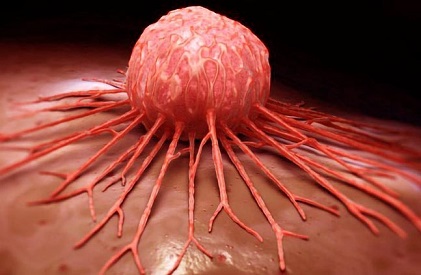The potential of inositols as adjuvants in treating endocrine and neuroendocrine tumors
Nikhil Prasad Fact checked by:Thailand Medical News Team Aug 25, 2024 1 year, 5 months, 2 weeks, 6 hours, 10 minutes ago
Medical News: Inositols, a group of naturally occurring compounds, have garnered attention in recent years for their potential role in cancer prevention and treatment. This
Medical News report delves into the promising effects of inositols, particularly myo-inositol (myo-Ins) and its derivative inositol hexakisphosphate (IP6), on endocrine and neuroendocrine tumors. Researchers from the Oncological Endocrinology Unit at IRCCS Regina Elena National Cancer Institute in Rome, Italy, have conducted a comprehensive review to explore the molecular mechanisms through which inositols might contribute to cancer treatment, offering insights into their potential as adjuvant therapies.
 Understanding Inositols and Their Mechanisms
Understanding Inositols and Their Mechanisms
Inositols, particularly myo-Ins and IP6, have been extensively studied for their role in regulating various cellular functions, including cell proliferation, apoptosis (programmed cell death), and immune response. Myo-Ins is a cyclic polyalcohol found in various foods, such as vegetables, cereals, and dried fruits. Its most phosphorylated form, IP6, is involved in numerous cellular activities, including signal transduction and cell differentiation.
The study explains that inositols may exert anti-cancer effects by modulating several key molecular pathways. For instance, IP6 has been shown to inhibit the PI3K/Akt pathway, which plays a critical role in cell growth and survival. By blocking this pathway, inositols can potentially reduce tumor cell proliferation and promote apoptosis. Moreover, inositols have antioxidant properties that help mitigate oxidative stress, a contributing factor in cancer development.
Inositols and Thyroid Cancer
Among endocrine tumors, thyroid cancer is the most prevalent, with an increasing incidence worldwide. The article highlights the role of inositols in managing thyroid nodules and preventing their progression to malignancy. Myo-Ins, when combined with selenium, has demonstrated effectiveness in reducing the size and stiffness of thyroid nodules, particularly those classified as low-risk. This combination therapy also appears to lower thyroid-stimulating hormone (TSH) levels, which are associated with an increased risk of thyroid cancer.
Researchers have observed that inositols may help prevent the malignant transformation of thyroid nodules by modulating the PI3K/Akt pathway, which is frequently activated in thyroid cancers. The potential of inositols as a protective agent against thyroid cancer warrants further investigation.
Inositols in Adrenal Tumors
Adrenal tumors, which include adrenocortical adenomas/carcinomas and pheochromocytomas, can be either benign or malignant. The study discusses how inositols could play a role in managing these tumors, particularly by targeting the PI3K/Akt pathway. This pathway is often overexpressed in adrenal tumors, leading to increased tumor growth and malignancy. Inositols, by inhibiting this pathway, may offer a new therapeutic approach for adrenal tumors.
Additionally, insulin resistance, a condition commonly associated with adrenal tumors, is another area where inositols could have a significant impact. Inositols have been shown to impro
ve insulin sensitivity, which could, in turn, reduce the risk of tumor growth and progression.
Inositols and Neuroendocrine Neoplasms (NENs)
Neuroendocrine neoplasms (NENs) are rare tumors that can arise in various parts of the body, with the gastro-entero-pancreatic system being the most common site. The research findings highlight the role of the PI3K/Akt/mTOR pathway in the development and progression of NENs. mTOR inhibitors, such as everolimus, are currently used to treat NENs, but resistance to these drugs can develop. Inositols, by targeting the same pathway, may offer a complementary approach to overcome drug resistance and improve treatment outcomes.
Furthermore, inositols have shown potential in reducing the secretion of hormones and peptides associated with functioning NENs, making them a promising candidate for further research and clinical application.
Emerging Therapeutic Perspectives
The study team emphasizes the need for more in vitro and in vivo studies to explore the full potential of inositols in treating endocrine and neuroendocrine tumors. While inositols are already used as insulin sensitizers in conditions like polycystic ovary syndrome (PCOS) and gestational diabetes, their application in oncology remains in the early stages.
One notable pilot study mentioned in the study involved patients with metastatic colon cancer who were treated with a combination of IP6 and inositol alongside conventional chemotherapy. The results were promising, showing a reduction in tumor growth and chemotherapy side effects, such as nausea and leukopenia. These findings suggest that inositols could play a valuable role as adjuvant therapies in cancer treatment.
Conclusion
Inositols hold great promise as potential adjuvant therapies for endocrine and neuroendocrine tumors. Their ability to modulate critical molecular pathways, improve insulin sensitivity, and enhance antioxidant defenses positions them as a compelling area of research in oncology. However, more studies are needed to confirm their efficacy and safety in clinical settings.
The study findings were published in the peer-reviewed journal Biomolecules.
https://www.mdpi.com/2218-273X/14/8/1004
For the latest Cancer News, keep on logging to Thailand
Medical News.
Read Also:
https://www.thailandmedical.news/news/exploring-the-potential-of-artemisinin-and-its-derivatives-in-cancer-treatment
https://www.thailandmedical.news/news/herbs-and-phytochemicals-the-anti-cancer-properties-of-astragalus-saponins
